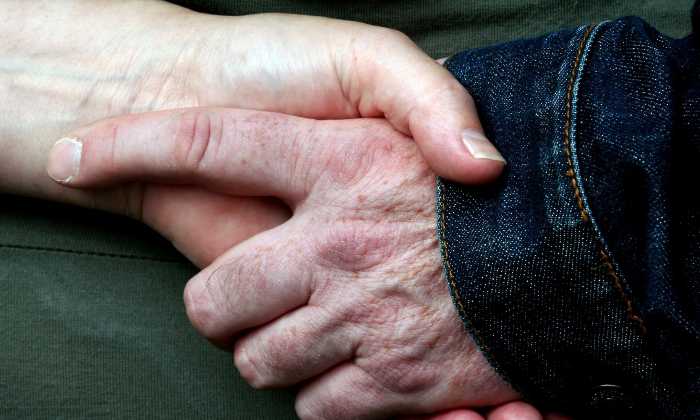New study reveals huge contribution of carers of terminally ill
06 Apr 2017
A landmark new study produced by staff in the Division of Nursing, Midwifery and Social Work in partnership with universities in Newcastle and Groningen has revealed that family carers of people with cancer are providing care well beyond the safe working hours recommended to preserve their health and well-being.

A landmark new study produced by staff in the Division of Nursing, Midwifery and Social Work in partnership with universities in Newcastle and Groningen has revealed that family carers of people with cancer are providing care well beyond the safe working hours recommended to preserve their health and well-being.
The study, funded by Dimbleby Cancer Care, has revealed that family carers of people with cancer on average provide almost 70 hours of care a week to look after their relatives in the last three months of life.
Gunn Grande, Professor of Palliative Care led the study in partnership with the National Institute for Health Research Collaboration for Leadership in Applied Health Research and Care, Greater Manchester (NIHR CLAHRC GM).
Professor Grande who appeared on the BBC Today programme to discuss the research said:
“This study for the first time quantifies the valuable hours carers give to their relatives and friends nationally in the final three months of life. Our figure of 69.5 hours a week is indicative of the huge contribution they make. This is a lot higher than the hours of care giving reported in the population in general and comes at a great cost to carers’ own psychological and physical health.
“Carers are a huge resource and provide vital support to people at the end of their life. They undertake a great deal of practical help, personal care and healthcare tasks as well as social and emotional support. It is carers who are there 24/7. Community health and social care staff are simply unable to deliver care round the clock care, which is why we need to invest in carers too.
“Carers need both support that gives them the know-how to look after the person who is ill and support to preserve their own health and well-being. Health and social care staff can here make a big difference in making sure carers’ support needs are assessed and addressed. Additionally, workplace, respite and financial support can all play a meaningful part in supporting carers.”
The paper ‘The contributions of family care-giving at end of life: A national post-bereavement census survey of cancer carers’ hours of care and expenditures’ is published in this month’s Palliative Medicine.
To read the press release in full click HERE.
